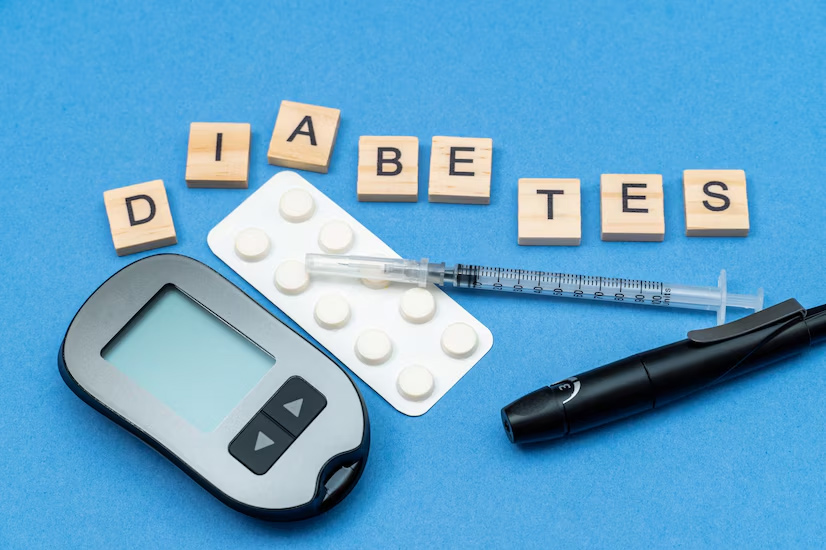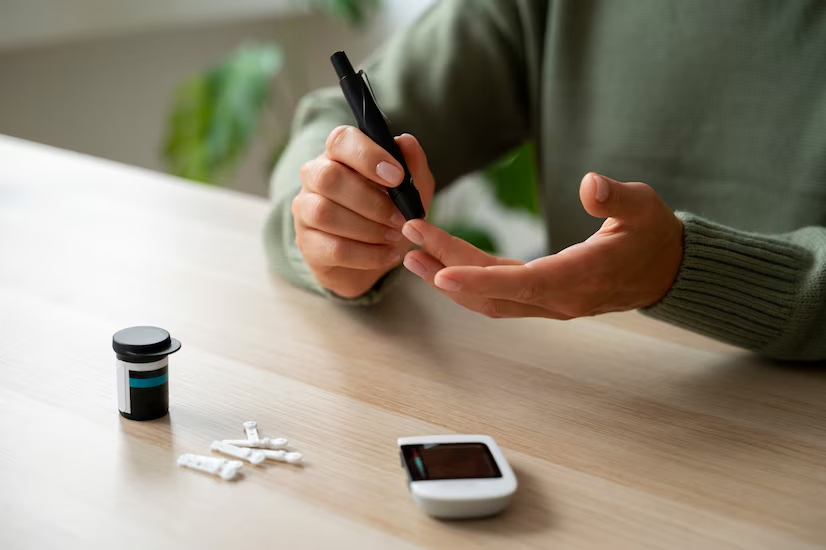
In our fast-paced world, where lifestyle diseases are increasingly common, a simple habit like staying hydrated can have profound effects on health, particularly in diabetes prevention and management. While hydration is widely recognised for general health benefits, recent research and expert insights highlight its unique role in regulating blood sugar levels and reducing the risk of type 2 diabetes.
Table of Content:-
Hydration’s Impact on Blood Sugar Levels
Water intake influences several metabolic processes that are central to blood glucose regulation. To understand the importance of hydration for managing blood sugar levels OnlyMyHealth team interacted with Dr Aasim Maldar, Consultant Endocrinologist and Diabetologist, P D Hinduja Hospital and MRC, Mahim,Mumbai. He explains, “Staying hydrated is more than just quenching thirst – it is one of the fundamentals to maintaining general health, and also for managing and preventing diabetes. A few emerging studies emphasise the significant impact of water intake on blood glucose regulation, showing that dehydration can lead to higher blood sugar levels and increased insulin resistance, complicating blood sugar management for individuals with or at risk for diabetes.”
Dehydration prompts the body to produce more vasopressin, an antidiuretic hormone. This hormone, crucial for water retention, also signals the liver to release stored sugars, raising blood glucose levels. Dr Maldar elaborates, “Chronic dehydration, therefore, poses a unique risk, potentially exacerbating blood sugar levels and making it harder for insulin to regulate glucose effectively. Over time, insufficient hydration may contribute to insulin resistance, a precursor to type 2 diabetes.” For those at risk, dehydration’s effects can push them closer to developing diabetes by increasing their body’s difficulty in managing blood sugar.
Also read: Silent Dehydration: How To Identify It Before It Becomes Severe

Vasopressin, Copeptin, and their Connection to Diabetes
The link between hydration and diabetes isn’t limited to vasopressin and to understand more about this, OnlyMyHealth team interacted with Dr Shankar V, Senior Consultant – Internal Medicine and Diabetology, Apollo Hospitals, Bangaluru. He notes, “Hydration and its relationship with diabetes is based on vasopressin and copeptin. Copeptin is a precursor of vasopressin. In addition to being an antidiuretic hormone, vasopressin also plays an important role in promoting gluconeogenesis and causing hyperglycemia.” Elevated levels of copeptin, which correlates with dehydration, are closely associated with an increased diabetes risk. This connection is substantiated by studies such as a French research project involving 3,600 middle-aged men, where participants who drank less than 0.5 litres of water daily had a significantly higher risk of developing diabetes over a nine-year follow-up.
Dr Shankar emphasises the importance of adequate hydration in diabetes prevention, stating, “Sweeteners and carbonated beverages should not be considered adequate hydration. Maintaining hydration of more than 1.5 litres per day is essential to prevent diabetes.” Given that sugary and carbonated drinks can lead to blood sugar spikes, water remains the best choice for maintaining both hydration and stable glucose levels.
Hydration’s Broader Benefits for Individuals with Diabetes

For those already diagnosed with diabetes, adequate hydration plays a crucial role in managing symptoms. Dehydration can exacerbate hyperglycemia symptoms such as fatigue, dry mouth, and blurred vision, all of which can be distressing. Moreover, Dr Maldar points out, “Dehydration can intensify the symptoms of hyperglycemia and increase the risk of complications like ketoacidosis in type 1 diabetes. By ensuring regular water intake, individuals with diabetes can help stabilise blood sugar levels, support efficient kidney function, and facilitate toxin removal from the body.”
Maintaining adequate hydration also supports cognitive health. Even mild dehydration can negatively impact concentration, memory, and emotional well-being, which are essential for those managing a chronic condition like diabetes.
Practical Hydration Guidelines for Diabetes Prevention

Both Dr Maldar and Dr Shankar agree that regular hydration is a practical yet effective way to reduce diabetes risk. Dr Shankar points out the importance of establishing hydration as a preventive measure, especially for individuals at higher risk. “Those who drink less than 0.5 litres of water per day should be classified as at risk for diabetes, and hydration should be advocated as a preventive measure,” he says, adding that regular water intake supports glucose management by reducing metabolic strain and promoting insulin sensitivity.
For optimal hydration, experts suggest drinking plain water rather than relying on sugary or carbonated beverages, which can hinder blood sugar control. A daily intake of at least 1.5 litres of water, ideally spaced throughout the day, is recommended to maintain hydration and support metabolic health.
Drinking enough water each day offers far-reaching benefits for blood glucose management and diabetes prevention. By incorporating this simple habit, individuals can support their metabolic health, manage their blood sugar levels, and reduce their risk of developing type 2 diabetes.
Also watch this video
Read Next
World Diabetes Day 2024: Why Bone Health Matters in Diabetes, Insights from an Orthopaedic Expert
How we keep this article up to date:
We work with experts and keep a close eye on the latest in health and wellness. Whenever there is a new research or helpful information, we update our articles with accurate and useful advice.
Current Version
